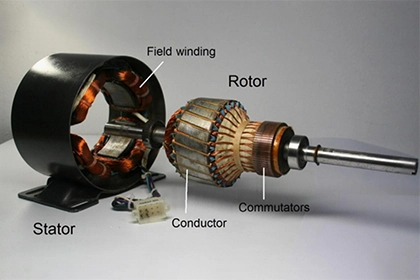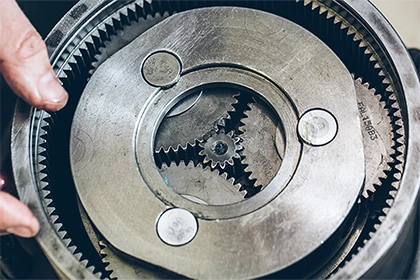
Why Should a DC Series Motor Not Be Started Without Load?
In this article, we will explore the reasons behind this recommendation and understand the potential consequences of starting a DC series motor without load.
Have you ever wondered why it is not advisable to start a DC Motor without a load? In this article, we will explore the reasons behind this recommendation and understand the potential consequences of starting a DC series motor without load. By delving into the principles of motor operation and the characteristics of a DC series motor, we can gain a deeper understanding of this important aspect of motor usage.
The Unique Characteristics of a DC Series Motor
Before we delve into the reasons why a DC series motor should not be started without load, let's first understand the unique characteristics of this type of motor. A DC series motor is a type of direct current motor that is widely used in various applications, including traction systems, cranes, and hoists. It is known for its high starting torque and the ability to deliver a consistent torque even at low speeds.
The Importance of Load on a DC Series Motor
A DC series motor is designed to operate with a load. The load connected to the motor provides the necessary resistance against which the motor can work efficiently. When a DC series motor is started without a load, it can lead to several undesirable consequences.
Over-Speeding
One of the main reasons why a DC series motor should not be started without load is the risk of over-speeding. Without a load, the motor can rotate at an extremely high speed, exceeding its designed limits. This can put excessive stress on the motor's components, leading to overheating, increased wear and tear, and even motor failure.
Armature Reaction
Another crucial factor to consider is armature reaction. In a DC series motor, the armature current generates a magnetic field that interacts with the field winding's magnetic field. This armature reaction creates a counter electromotive force (EMF) that opposes the supply voltage, regulating the motor speed. When the motor is started without a load, the absence of counter EMF can cause the motor to accelerate rapidly, resulting in unstable operation and potential damage to the motor.
Excessive Current and Power Consumption
Starting a DC series motor without a load can also lead to excessive current and power consumption. Without a load to consume power, the motor will draw more current from the power source. This increased current can overload the motor and the power supply, potentially causing damage to both. Additionally, the unnecessary power consumption can increase energy costs and reduce overall system efficiency.
Lack of Mechanical Stability
A load provides mechanical stability to the motor. Without a load, a DC series motor can experience mechanical instability, leading to vibrations and oscillations. These vibrations can cause damage to the motor's bearings, brushes, and other components, reducing the motor's lifespan and requiring frequent maintenance and repairs.
Conclusion
Starting a DC series motor without a load can have severe consequences on the motor's performance, stability, and longevity. From over-speeding and armature reaction issues to excessive current and power consumption, the absence of a load can lead to various problems. It is crucial to always ensure that a DC series motor is appropriately loaded before starting to optimize its performance, protect its components, and maximize its lifespan. By adhering to this best practice, you can ensure the efficient and reliable operation of your Lunyee DC series motor for years to come.



Leave a Comment